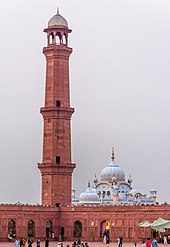Badshahi Mosque , Lahore
"" Visited Lahore ""
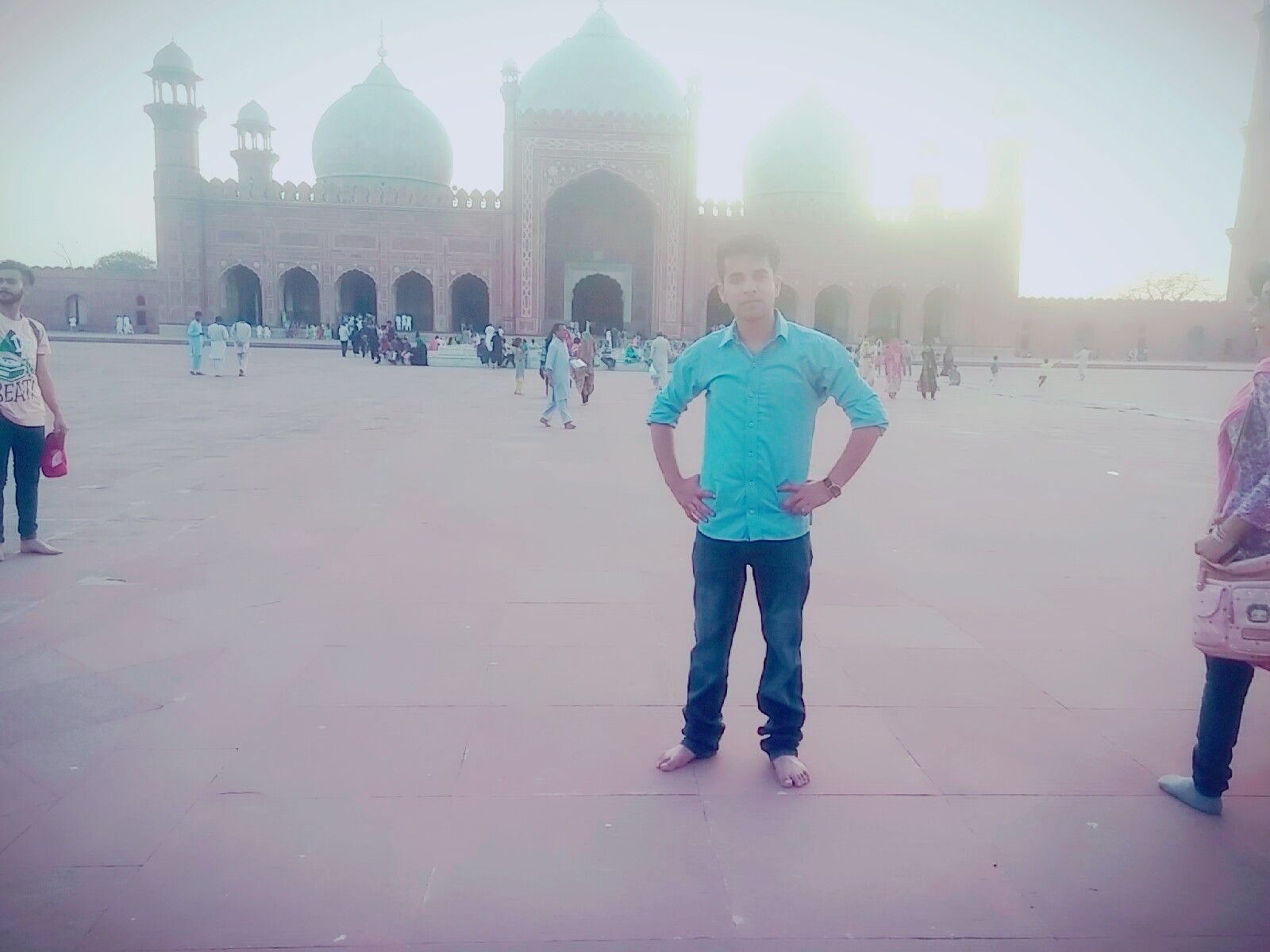
"" The Badshahi Mosque ""
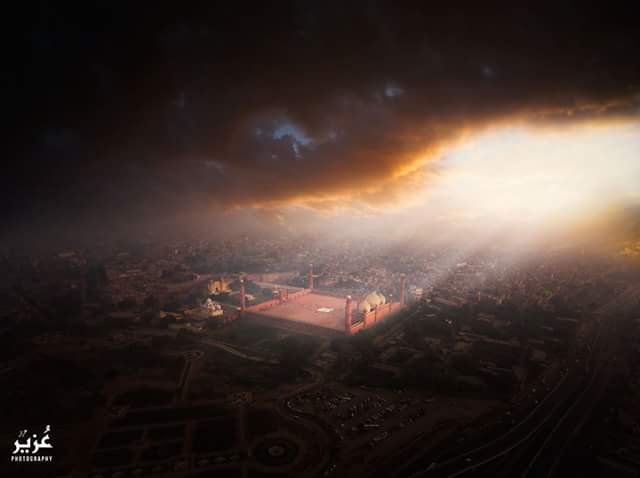
The Badshahi Mosque ("Imperial Mosque") is a Mughal era mosque in Lahore, capital of the Pakistani province of Punjab.The mosque is located west of Lahore Fort along the outskirts of the Walled City of Lahore. The mosque is widely considered to be one of Lahore's most iconic landmarks.
Basic information
Location Lahore, Punjab
Country Pakistan
Architectural style Indo-Islamic, Mughal
Completed 1673
Specifications
Capacity 56,000
Dome(s) 3
Minaret(s) 8 (4 major, 4 minor)
Materials Red sandstone
Badshahi Mosque is renowned for the carved marble and elaborate plasterwork that are used throughout the mosque's interior.
Badshahi Mosque was commissioned by Emperor Aurangzeb in 1671, with construction of the mosque lasting for two years until 1673. The mosque is an important example of Mughal architecture, with an exterior that is decorated with carved red sandstone with marble inlay. It remains the largest and most recent of the grand imperial mosques of the Mughal-era, and is the second-largest mosque in Pakistan. After the fall of the Mughal Empire, the mosque was used as a garrison by the Sikh Empire and the British Empire, but is now one of Pakistan's most iconic sights.
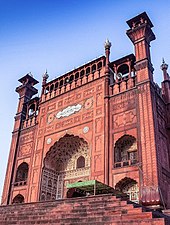
Background
Lahore was considered a strategic center as it protected the empire from potential invaders from the west.The city was made an imperial capital by the earlier Emperor, Akbar, who established the nearby Lahore Fort.
The sixth Mughal emperor, Aurangzeb, chose Lahore for as the site for his new imperial mosque. Aurangzeb, unlike the previous emperors, was not a major patron of art and architecture and instead focused much of his reign on various military conquests, which added over 3 million square kilometres to the Mughal realm.
The mosque was built to commemorate military campaigns against the Maratha king Shivaji Bhonsle, although construction of the mosque exhausted the Mughal treasury and weakened the Mughal state.As a symbol of the mosque's importance, it was built directly across from the Lahore Fort and its Alamgiri Gate, which was concurrently built by Aurangzeb during construction of the mosque.
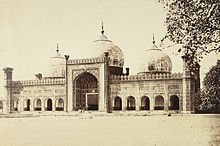
Construction
The Badshahi Mosque features a monumental gateway that faces the Hazuri Bagh quadrangle and Lahore Fort.
The mosque's was commissioned by the Mughal Emperor Aurangzeb in 1671, with construction overseen by the Emperor's foster brother, and Governor of Lahore, Muzaffar Hussein - also known by the name Fidai Khan Koka.Aurangzeb had the mosque built in order to commemorate his military campaigns against the Maratha leader Shivaji Bhonsle.After only two years of construction, the mosque was opened in 1673.

Architecture
As a gateway to the west, and Persia in particular, Lahore had a strong regional style which was heavily influenced by Persian architectural styles. Earlier mosques, such as the Wazir Khan Mosque, were adorned in intricate kashi kari, or Kashan style tile work from which the Badshahi Mosque would depart. Aurangzeb chose an architectural plan similar to that of Shah Jehan's choice for the Jama Masjid in Delhi, though built the Badshahi mosque on a much larger scale.Both mosques feature red sandstone with white marble inlay, which is a departure from typical mosque design in Lahore, in which decoration is done by means of intricate tile work.

Minarets
At each of the four corners of the mosque, there are octagonal, three storey minarets made of red sandstone that are 196 feet (60 m) tall, with an outer circumference of 67 feet and the inner circumference is eight and half feet. Each minaret is topped by a marble canopy. The main building of the mosque also features an additional four smaller minarets at each corner of the building.
